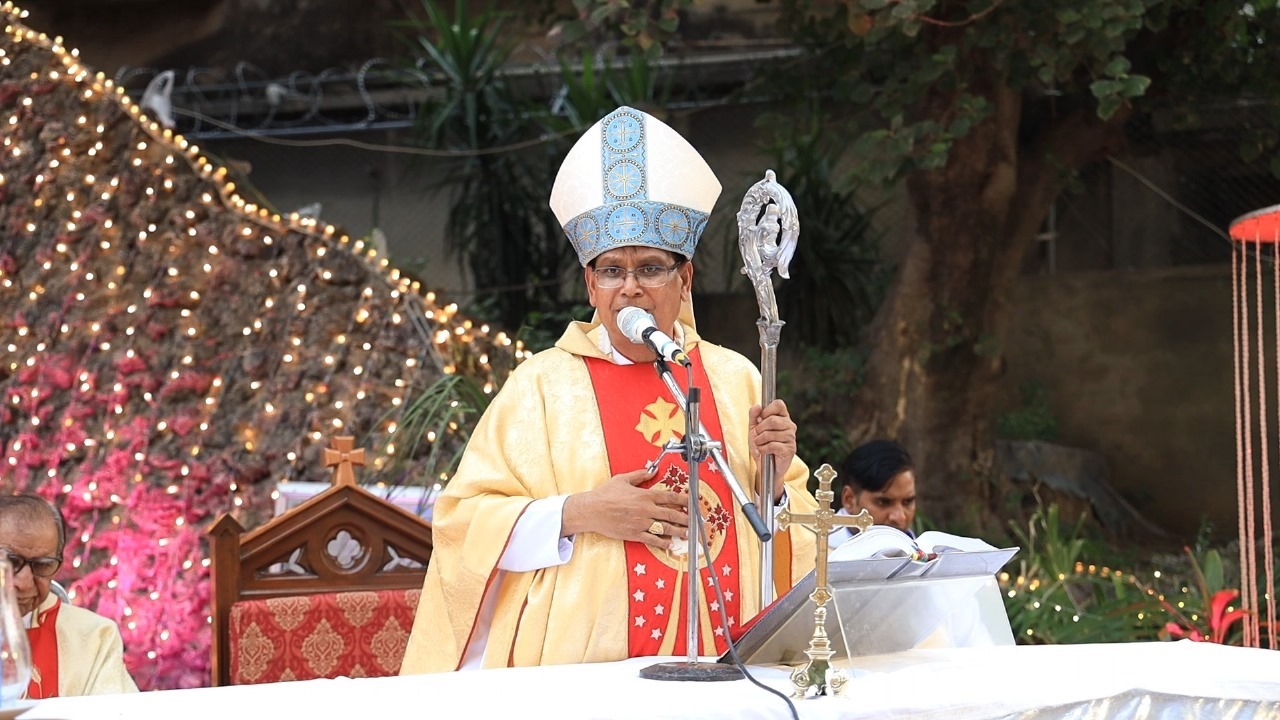By: Imran Shoukat
In a nation often grappling with religious polarization and social inequality, Archbishop Dr. Joseph Arshad has emerged as a symbol of hope, unity, and inclusive patriotism. As the Archbishop of Islamabad-Rawalpindi and President of the Catholic Bishops’ Conference of Pakistan, his leadership has bridged the gap between faith and civic engagement, transforming the role of the Church into one of national relevance and social impact.
Born in Lahore on August 25, 1965, Archbishop Arshad’s journey is deeply rooted in both faith and service. Ordained a priest in 1991, he achieved a doctorate in Canon Law from Rome and went on to become the first Pakistani priest to serve in the Vatican’s diplomatic corps in 1999. For over 15 years, he represented the Church in countries including Bangladesh, Madagascar, Bosnia, Sri Lanka, and Malta—experiences that broadened his perspective and strengthened his commitment to peacebuilding and interreligious dialogue.
“From Malta to Madagascar and from Rome to Rawalpindi, he has served not just the Church but the cause of peace and understanding,” says a close associate.
After returning to Pakistan in 2013 as Bishop of Faisalabad, he was appointed Archbishop of Islamabad-Rawalpindi in 2017. In these roles, he has expanded his outreach beyond the pulpit—becoming a tireless advocate for youth empowerment, education reform, minority rights, and national cohesion.
Empowering the Marginalized:
A central part of Archbishop Arshad’s mission has been the uplift of Christian youth in Pakistan. Recognizing the barriers they face in accessing quality education and public sector employment, he launched the CSS coaching program, offering free training to prepare underprivileged Christian students for the country’s Central Superior Services exams.
“Youth are the legacy of both Christianity and Pakistan,” Archbishop Arshad has said, urging young people to become peacemakers and patriotic citizens who can contribute meaningfully to the nation’s development.
His leadership during the 2020 “Year of Youth” campaign amplified this vision, calling on young Pakistanis—regardless of faith—to embody values of equality, tolerance, and national pride.

Champion of Human Rights:
Since 2016, Archbishop Arshad has served as Chair of the National Commission for Justice and Peace (NCJP), one of Pakistan’s most prominent human rights organizations. Under his stewardship, the Commission has taken bold stands against discrimination, forced conversions, violence, and systemic injustice.
He has repeatedly drawn attention to the plight of marginalized communities, including Christians, whom he has described as living under “semi-slavery” due to socio-economic oppression. His advocacy has focused on inclusive education policies and legal reforms to protect minority rights—issues he views as essential to building a just society.
“Our faith demands justice, and justice is the foundation of national unity,” he often reminds both policymakers and the public.
Faith Meets Patriotism
Beyond activism and advocacy, Archbishop Arshad has used cultural platforms to convey messages of peace and patriotism. Through Catholic media channels like Ave Maria TV and Wave Studio, he has promoted interfaith understanding and shared spiritual content that resonates with Pakistani values.
His influence has also extended to music. A passionate supporter of patriotic expression, Archbishop Arshad has inspired and composed several national songs performed by Christian choirs and youth groups. Tracks like “Tu Mera Pakistan”, “Mera Pakistan Zindabad Hai”, and “Tera Pakistan Hai Yeh Mera Pakistan Hai” have become symbols of unity, reflecting his belief that love for Pakistan transcends religious boundaries.
Recognition and Legacy
In 2016, his contributions were recognized at the highest level when he received the National Human Rights Award from the President of Pakistan. On Independence Day 2023, he reiterated the importance of minority contributions in national life, emphasizing their vital roles in education, healthcare, and public service.
An accomplished scholar as well, Archbishop Arshad has published works on canonical law, church unity, and the Church’s role in modern society. He has taught theology and journalism, mentoring a generation of future leaders to combine faith with public engagement.
A Vision Rooted in Service
Archbishop Arshad draws inspiration from the vision of Pope Leo XIII, who urged the Church to be a force for social justice and human dignity. In Pakistan, he has embodied this call—redefining religious leadership as a partner in national progress.
“Serving God means serving people—and serving people means serving Pakistan,” he says, encapsulating a mission that continues to inspire across communities.
Through his tireless efforts in education, human rights, interfaith dialogue, and cultural engagement, Archbishop Joseph Arshad has become more than a religious leader—he is a national voice for justice, unity, and peace in a divided society.
As Pakistan continues to face challenges to its pluralistic identity, his life’s work offers a compelling model of leadership grounded in compassion, courage, and commitment to the common good.



In a situation where people need their voices to be heard, here he comes like John the Baptist, Archbishop Dr.Joseph Arshad, a symbol of unity and peace. We need to listen to each other for a better tomorrow.
Archbishop Joseph Arshad, your tireless advocacy for human rights and justice inspires us all. Your courageous stand against discrimination and oppression is a beacon of hope for marginalized communities. Thank you for championing the cause of justice, peace, and unity. May your work continue to bear fruit, and may God bless you abundantly.